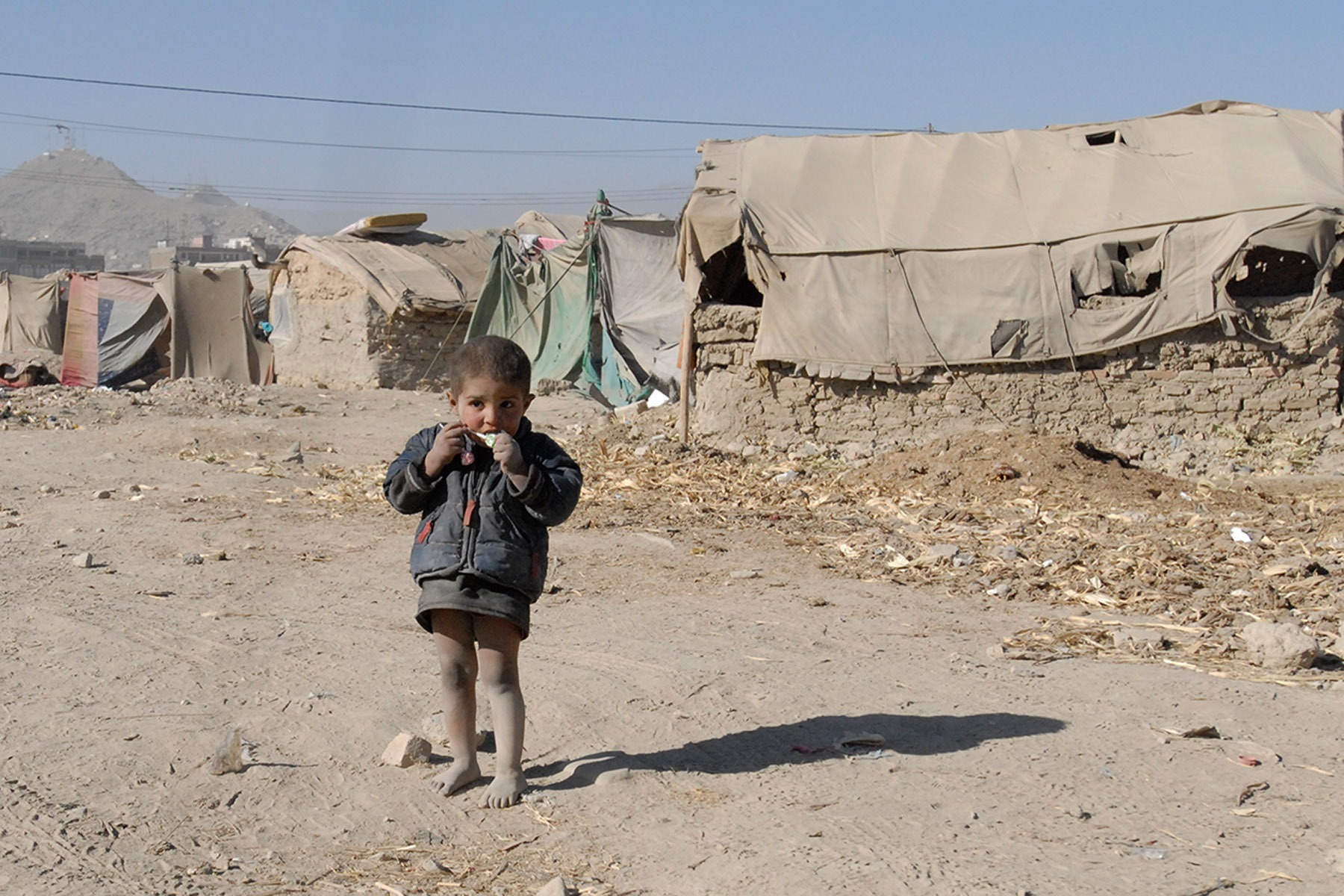This latest failure to save the lives of Afghan nationals comes on the back of a legacy of betrayal by Western nations.

An elderly man sitting outside a local minimarket on the Greek island of Samos turns to his friends and laments, “Now thousands of Afghans are going to come to Greece.” Samos is among the country’s Aegean islands that received a combined one million asylum-seekers during 2015-2016, with tens of thousands annually since, and where hospitality is at a low ebb. Such sentiments were expressed at an official level too, with the Greek migration minister swift to declare in response to the unravelling disaster in Afghanistan that his country “will not and cannot be the gateway of Europe for the refugees and migrants who could try to come to the European Union.” Citing the millions who now threatened to leave Afghanistan for the continent, he stated that Greece’s borders will remain “inviolable”. The minister’s remarks came as he toured a 25-mile strip of high-surveillance fencing his government had just installed at its northern border with Turkey amid fears of escalating arrivals.
Other EU leaders advocated a similar zero-tolerance approach to Afghanis seeking protection in Europe via unofficial routes. Most notably, France’s Emmanuel Macron espoused the continent’s own need to “anticipate and protect” itself against what he deemed “irregular” migratory flows from Afghanistan. Six member states – including Germany, the Netherlands and Austria – went so far as to issue a prompt letter to the European Commission to warn against any suspension in deportations of existing failed Afghan asylum-seekers – a step they claimed could “motivate even more Afghan citizens to leave their home for the EU.” A handful of dissenting EU representatives called on the body to instate resettlement quotas or even invoke extraordinary protection mechanisms to ensure the immediate safe passage of Afghans to Europe. Amid this by now customary fight over migration, EU commissioner Ursula von der Leyen emphasised the need to balance the campaign against irregular migration with international efforts to facilitate safe and legal routes into Europe for vulnerable Afghans. Such a strategy, she said, reflected the EU’s “comprehensive and balanced approach on migration set out in the new Pact on Migration and Asylum”, and more so, “our moral duty.”
Perception over principles
In Westminster meanwhile, Boris Johnson and Priti Patel announced a “bespoke” resettlement scheme for up to 20,000 Afghan refugees (the same number as Britain’s intake from Syria), which they deemed “one of the most generous in our country’s history.” The scheme – which in its fine print stipulates that resettlements will take place over five years and may be from third countries given the lack of safe passage out of Afghanistan – has been described by other migration commentators as “blindly inhumane.” As has been pointed out, not only is the resettlement figure a mere fraction of Britain’s intake of refugees from previous conflicts (for example, Asian Ugandans or Vietnamese), a capped number is also at odds with the very notion of humanitarian assistance in a crisis of vast proportions. The scheme is instead a political gesture – one that aims to project the image of UK action on Afghanistan while catering to the perceived electoral need to tackle migration.
All the while, Hamid Karzai International Airport assumed the semblance of a horror-film, from which any hope of escape – even for those Afghans with visas or evacuation orders – became evermore remote. The sluggish policy declarations of Western governments and inept, bureaucratic mechanisms for evacuating eligible Afghans appeared inured to the urgency of the circumstance. As the Taliban consolidated control of the country and escalated its hunt for collaborators, former Afghan employees of British forces told how they were counting down the days left of their lives waiting for unforthcoming replies from the UK Home Office. (Another interpreter for the German military recounted how the Bundestag finally ordered a private vehicle to chauffeur he and his wife and two infant children to the airport, only to then be told by German forces at the gate that his name was not on a list and sent away. All he could do now was pray, the man said.)
A widely-circulated photograph of an Afghan infant being handed to British troops over the razor wire at the airport seemed to best encapsulate the foreign evacuation effort: utterly piecemeal, random and contingent on individual acts of succour. As one exasperated Afghan national, a former interpreter for Western forces, observed of the sluggish international efforts, “they are just waiting to see how the Taliban cuts our heads off and rapes my wife… if they grant visas for our dead bodies, does it make sense?”
Deterrence and deportation
The failure we are now witnessing on the part of EU, UK and other governments to save the lives of Afghan nationals (including those who served and protected their own citizens) is not new. Rather, the sense of betrayal voiced by so many Afghans during the catastrophic past weeks is part of a longer-standing trajectory of Western betrayal of those fleeing the country. And gratifying as it may be for the EU commissioner to invoke the imperatives of ‘moral duty’, the reality is that policy toward Afghan asylum seekers has been guided by neither balance nor morality.
More than 600,000 Afghans have applied for asylum in the twenty-seven countries of the EU bloc over the past decade. Since 2018, Afghans have outnumbered any other nationality among asylum-seekers arriving to Europe via the Aegean Sea and Balkan land route. They are now the highest represented population of some 200,000 asylum-seekers in Greece and second only to Syrians among the more than 4.5 million in neighbouring Turkey. Of the more than 2,000 individuals pulled from the Aegean waters by the Turkish coastguard during the first quarter of this year, the majority were reported to be Afghan.
The scale and duration of the exodus from Afghanistan to Europe has not, however, equated to a recognition of the need for protection. More than a third of the some 11,000 Afghans who applied for refugee status in Greece during 2020 were rejected in the first instance, with less than a third granted refugee status. This year alone, the EU has collectively deported some 1,200 Afghans from the continent – a practice carried out routinely by member states over the past five years on the premise that Afghanistan is a ‘safe country’. Patently flawed to anyone with even a cursory knowledge of events in the country, such a claim contradicts the verdict of multiple EU envoys to Afghanistan and even the ruling of the European High Court of Human Rights. Since 2008, Britain has surpassed any EU state in repatriating more than 15,000 Afghan asylum seekers – again, on the myth of return to a “safe country”. It was not until weeks into the Taliban advance that the Home Office on 16th August reversed its policy that those deported to Afghanistan faced no “real risk of harm.”
Afghans attempting to the reach the European continent in recent years confront new forms of harm at the hands of EU governments. The migration policy to which Von der Leyen referred in her reassurances of safe passage is the same pact that has seen countless thousands of asylum-seekers violently repelled from Europe’s land and sea borders in push-backs by Greek and other member-states authorities – or abandoned in the Mediterranean to die with the complicity of the EU Border and Coastguard Agency, Frontex. Within EU borders, Afghan asylum-seekers face processing times in the vicinity of years, during which they must endure precarious and often violent living conditions alongside systemic marginalisation, as EU migration policy is meted out evermore harshly in the name of ‘deterrence’.
The promise to Afghans and the legacy of betrayal
“There is a war with the Taliban in Afghanistan and in Europe, there is a war against refugees,” says Maryam, an Afghan woman on the island of Lesvos. A high-level campaigner for education equality and women’s rights, she came to Europe in 2018 with her husband and two daughters after direct attempts on her life by the Taliban. Almost two years later, the family received their asylum papers and Maryam has since battled bureaucracy and xenophobia simply to have her daughter admitted to school in Greece. Working women like herself have this week been warned by the Taliban against attending their workplaces and Maryam now receives daily phone-calls from friends in Afghanistan, seeking help as Taliban forces in the provinces go door-to-door demanding families hand over their daughters as young as 11-years-old. “The face of the Taliban might have changed, but their barbarism is the same,” she says, noting her fears that forced marriages and gender-based violence will increase daily – just as they increased even under the US presence in Afghanistan. “Anyway, how can we really expect security or democracy from the Taliban, when even here in Europe we face discrimination, violence and a denial of rights?”
Those Afghans who today land on the Greek islands are typically sequestered out of reach soon after – often returned directly to Turkey or held for days in remote island locations without access to food and water, basic hygiene facilities or legal assistance. Like many others, Maryam has little faith in the assurances by Western governments about assisting fleeing Afghans. “Even if they promise to take people, where is the system? I believe they are just playing with people – we are just another brick in the wall,” she says.“Western governments came running to Afghanistan saying ‘we will help you, we will give you money and hope’ and expected us to kiss their hands, while with the hand, they pushed Afghans back into a dark corner.”
It is hard to imagine a more brutal or chaotic end to the Western campaign that begun twenty years ago than the scenes of violence and desperation now playing out across Afghanistan. As Western governments fumble for a strategy of engagement with the Taliban in advance of the evacuation deadline at the end of August, the last flights lift off from Kabul, leaving the majority of would-be evacuees to clutch at their wheels amid the crush or risk perilous overland journeys out across Taliban-policed land borders. Such violence seems to come as a final bleak vindication of the hollowness of the promises of democracy and stability that scaffolded the Western campaign in Afghanistan. From Harmid Karzai airport to EU-funded detention camps and the streets of central Athens, where Afghan families have for years slept abandoned in the open air, it is hard too, to imagine an uglier incarnation of realpolitik.

